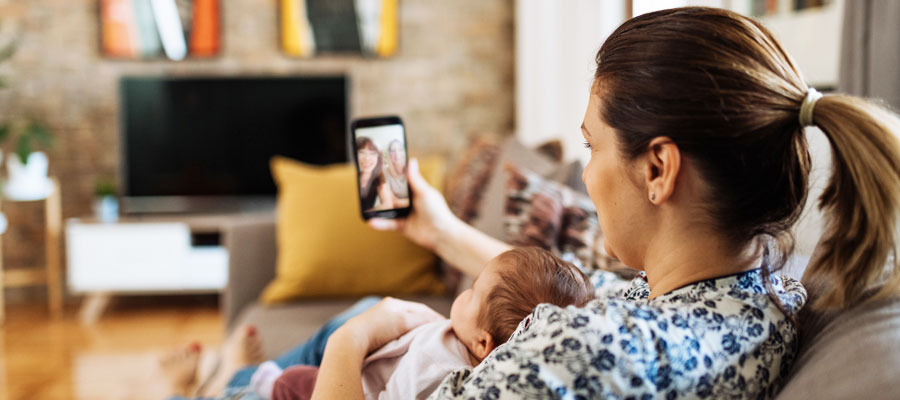
VIC update: managing the new COVID-19 lockdown in your apartment
With Victoria’s second COVID-19 lockdown being more precarious and challenging than the initial outbreak, it is important committee members and owners know how to reduce the spread of COVID-19.
Committees and owners have a legal duty of care to maintain the common property and are responsible for the health and safety of those who come and go, including during COVID-19. Knowing what to do for multi-owed properties during a pandemic can be daunting. So, to assist, we have collated some of the actions committee members and owners could consider.
As a group, our focus has been and will continue to be providing committee members and owners with the support and resources to follow government recommendations and best practice safety procedures.Committees members and owners could consider the following:
- Committees should create a pandemic management plan
- Committees should continue to remind residents of risks and restrictions
- Owners should notify the manager and committee of required quarantine periods
- If the committee becomes aware of COVID-19 on the property, steps should be taken to decrease risk
- Make sure you have identified the restrictions that apply to you and your property
- Where possible, annual general meetings should be held via digital means
Committees should create a pandemic management plan
Creating a COVID-19 management plan will help you and your property identify areas that could leave you open to risk. It’s a way of working through each element of your property in relation to COVID-19 and allows for the implementation of control measures. Your pandemic management plan should list and review:
- Any activity where people come and go from the property. Such as postal deliveries and essential guests.
. - Financially review the property’s funds.
. - List and review all common property areas that are at risk of contamination or have additional public health orders and restrictions applied to them. For example, pools, spas, and gyms. If a facility is shut, committees should provide signage and notify residents of its closure.
. - Maintain a register of all users of common property facilities and equipment to provide the Department of Health should an outbreak occur. Committees are required to keep user names, and date and time of use for 28 days and dispose of information securely after the time period.
. - Review upcoming maintenance schedules — essential maintenance requirements should go ahead, but non-essential services should be postponed.
. - Committees and owners remain responsible for contractors visiting your site. You are advised to not directly approach contractors. Contractors should be organised and instructed by your owners corporation manager via official work orders.
. - Review and decide on a consistent way of communicating with residents, one that is appropriate for the demographic within your community. Multi-platform approaches, such as a combination of noticeboards, emails or technology, and signs are helpful.
. - Review cleaning schedules and increase cleaning in common areas. In particular, places and spots of frequent contact such as door handles, handrails and lift buttons.
Committees should continue to remind residents of risks and restrictions
Victoria’s relapse in cases shows that it is vital to continually remind our communities of what we must be doing to get through this together. Committees should be increasing signage on common property about social distancing, hygiene measures, and providing hand sanitisers at central locations to minimise spread.
Useful posters to put up around your property include:
.
- Keep your distance poster, click here
- How to use hand sanitiser poster, click here
Owners should notify the manager and committee of required quarantine periods
Notifying the committee and owners corporation manager should allow for the property to take additional precautions and to provide more support to those in quarantine. For example, if you can’t leave your apartment, your manager or committee may be able to assist with delivery of food or goods.
More formally, owners are bound by the Model Rules and Consolidated Rules which stipulate those on the property will not hazard the health, safety and security of other owners or occupiers.
If the committee becomes aware of COVID-19 on the property, steps should be taken to decrease risk
If the committee or manager becomes aware of a case of COVID-19, there are steps that should be taken to keep their identity concealed. Their personal details and specific location must be kept confidential. Steps that should be taken if there is a case on your property include:
- Alerting any contractors who service the site. This allows them to increase their protective protocols.
- Placing a notice on the noticeboard advising that a case has been reported. Do not provide private and confidential information. It can be a general notice, confirming the presence of COVID-19 and recommending additional precautions.
- Provide details to the resident with COVID-19 about how they should receive deliveries, essential visitors, dispose of rubbish and follow other property restrictions.
Make sure you have identified the restrictions that apply to you and your property
Different geographical locations in Victoria currently have different levels of restrictions. To be sure of where your property sits, view the Department of Health and Human Services’ restrictions map.
Committees and owners will need to remain vigilant and stay up to date with government and health announcements to see if circumstances change. For now, as a general rule, the below restrictions apply to the following areas:
.
Metropolitan Melbourne and Mitchell Shire:
- Owners and residents should be staying at home (unless for government-approved reasons) and not using common area facilities.
. - There should be no visitors on the property unless it is essential.
. - Pools, spas, saunas, gyms, training facilities, and communal showers should be closed. This applies to your property’s outdoor facilities too.
. - Lifts can remain in operation, but social distancing and maximum capacities of 1.5 meters between people must be followed.
. - Social distancing must be adhered to within hallways, entrances, stairwells and lobbies.
The remainder of Victoria:
Specific government advice for owners corporations in this area is largely unstated. However, generally, the rules for other facilities, such as public pools and community centres, can be applied to an owners corporation. More commercial facilities, however, are normally supervised by staff, so properties will need to make sure they undertake government health measures and guidelines to reduce risk.
For the remainder of Victoria, the following applies:
- Owners are being asked to use common sense when it comes to socialising and undertaking activities — only do it if you need to.
. - You are able to have up to five visitors in a home at any one time, in addition to the household’s normal residents.
. - Pools, gyms, training facilities and communal showers can open with a maximum of 20 people (indoor and outdoor). Regardless of the size of the space, there must be 1.5 metres between people. This will place a maximum capacity of how many people can be in one area. Committees will need to figure out space capacities.
. - Lifts can remain in operation, but social distancing and maximum capacities of 1.5 meters between people must be followed.
. - Social distancing must be adhered to within hallways, entrances, stairwells and lobbies.
Where possible, annual general meetings should be held via digital means
Where possible, owners should only be convening to make critical decisions and doing so virtually, such as by video and teleconference, or by ballot.
For areas under lighter restrictions, Victorians are still being asked to only attend essential gatherings of less than ten people. This indicates that only essential business should require people to meet. Where possible, annual general meetings (AGMs) should continue to be held virtually or deferred.
If an AGM must be held to comply with legislative requirements, such as to be held within 15 months of the last AGM, it can only be held with ten people physically present. The remainder will have to be via video, phone, or other.
Should the meeting go ahead, the owners corporation must hold the meeting in a venue that will allow for social distancing and should provide hand sanitiser. All surfaces should be cleaned down, including tables, seats, door handles before and after, there must be adequate ventilation, and the chairs must be set up to accommodate social distancing.
Attendees should be reminded to follow social distancing rules and bring their own pen and papers, and not physically attend the meeting if they are feeling unwell.If you’d like to find out more on managing health & safety for our property, find out more about our Community Health & Safety services by clicking here. Our team is ready to assist you 24/7.


